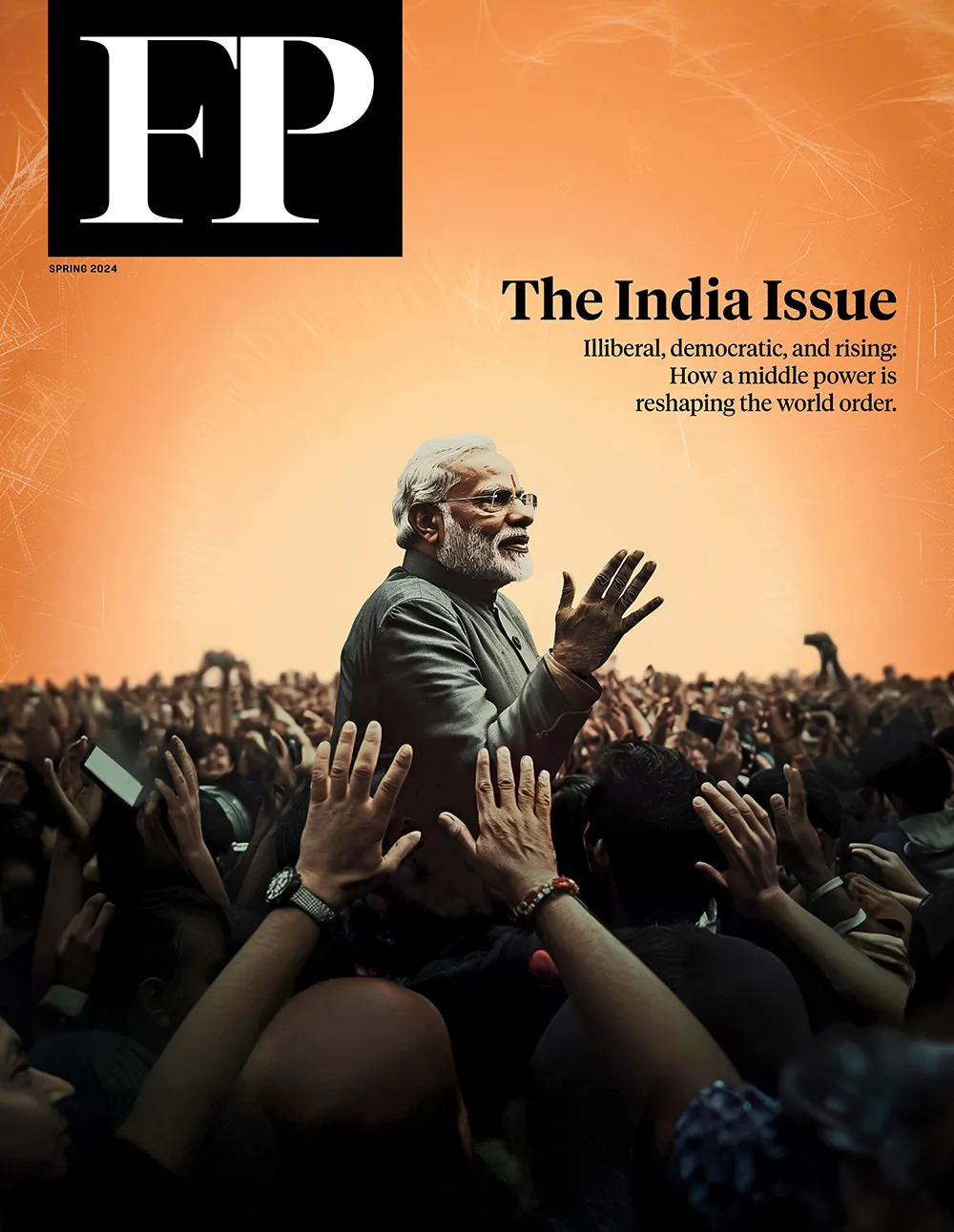Israel Strikes Jabalia Refugee Camp, Major Gaza Hospitals
Meanwhile, Israeli and foreign officials react to ICC allegations of war crimes in Gaza.
Welcome back to World Brief, where we’re looking at Israeli strikes in northern Gaza, Iran’s funeral proceedings, and a diplomatic tiff between Spain and Argentina.
Welcome back to World Brief, where we’re looking at Israeli strikes in northern Gaza, Iran’s funeral proceedings, and a diplomatic tiff between Spain and Argentina.
Northern Gaza Offensive
The Israel Defense Forces (IDF) pushed deeper into the northern Gaza city of Jabalia on Tuesday. Tanks and airstrikes targeted the city’s 75-year-old refugee camp, Gaza’s largest such encampment. Medics said Israeli strikes there killed at least 15 people and injured dozens of others on Saturday. Two major medical centers—al-Awda and Kamal Adwan hospitals—also came under fire on Tuesday.
Israel declared the end of major operations in northern Gaza in January but renewed military offensives there nearly two weeks ago to prevent Hamas from retaking the area. Last weekend, the Israeli Air Force said it “struck over 70 terror targets [in the Gaza Strip] during the past day, including weapons storage facilities, military infrastructure sites, terrorists who posed a threat to IDF troops, and military compounds.”
Meanwhile, the IDF launched a raid in the West Bank city of Jenin on Tuesday that it said aimed to counter terrorist activity linked to the Hamas and Palestinian Islamic Jihad militant groups. At least seven Palestinians were killed and nine others wounded in the major military operation.
Fissures have erupted within the Israeli government over Prime Minister Benjamin Netanyahu’s handling of the conflict. Benny Gantz, a minister in Israel’s three-member war cabinet, threatened on Saturday to resign and withdraw his party from Netanyahu’s emergency coalition if the prime minister does not agree to a day-after plan in Gaza by June 8. Gantz has proposed a six-point plan regarding future rule in the enclave, wherein Israel would retain security control over Gaza while a temporary U.S.-European-Arab-Palestinian system would oversee civil administration.
However, most Israeli officials—including Gantz—have unified behind criticism of the International Criminal Court, whose top prosecutor announced on Monday that he is seeking arrest warrants for Netanyahu and Israeli Defense Minister Yoav Gallant as well as three Hamas leaders. ICC Prosecutor Karim Khan said the court has “reasonable grounds to believe” that these individuals “bear criminal responsibility” for war crimes and crimes against humanity conducted during the Israel-Hamas war. If the ICC’s pretrial chamber approves the arrest warrants, then Netanyahu and the other officials could be arrested if they were to step foot on an ICC member’s soil.
In an interview with ABC News on Tuesday, Netanyahu accused Khan of being “out to demonize Israel.” U.S. President Joe Biden and other world leaders appeared to back Netanyahu’s claims. “What’s happening is not genocide. We reject that,” Biden said on Monday regarding the situation in Gaza, though the ICC charges do not include genocide. U.S. Secretary of State Antony Blinken hinted on Tuesday that the Biden administration may be open to working with the Senate on legislation to sanction the ICC over the decision.
Polish Prime Minister Donald Tusk, a former president of the European Council, agreed with Washington’s assessment, adding on Tuesday that “an attempt to show that the prime minister of Israel and the leaders of a terrorist organizations are the same … is unacceptable.” Whereas Israel and the United States are not parties to the ICC, Poland is.
But not all foreign officials have denounced the ICC’s announcement. France, Belgium, and Slovenia—all ICC members—released statements on Tuesday supporting the court’s autonomy. In response, Netanyahu dispatched an envoy to Paris to try to bolster European support for his country’s war in Gaza.
Today’s Most Read
- What Raisi’s Death Means for Iran’s Future by Jack Detsch
- When Will Washington Get Serious About Taiwan? by Raymond Kuo, Michael Hunzeker, and Mark Christopher
- The Man Who Would Help Trump Upend the Global Economy by Edward Alden
What We’re Following
National mourning. Iran began funeral proceedings on Tuesday for the late President Ebrahim Raisi, Foreign Minister Hossein Amir-Abdollahian, and the six other people killed in a helicopter crash on Sunday in Iran’s Dizmar forest. State-run media have cited a “technical failure” as the cause of the crash. Ayatollah Ali Khamenei has announced five days of national mourning.
Thousands of mourners began the procession in Tabriz, the closest major city to the crash site, on Tuesday. From there, Tehran will hold the first in a series of state funerals for Raisi on Wednesday before he is buried later this week. First Vice President Mohammad Mokhber will serve as acting president until new elections can be held within the next 50 days.
Harsh words. Spanish Prime Minister Pedro Sánchez indefinitely recalled Madrid’s ambassador to Argentina on Tuesday after Argentine President Javier Milei accused Sánchez’s wife, Begoña Gómez, of being “corrupt.” “There is no precedent for a head of state who goes to another country’s capital to insult its institutions and flagrantly interfere in its internal affairs,” Spanish Foreign Minister José Manuel Albares said.
Milei’s comments alluded to a judicial investigation into Gómez that Sánchez argues is a right-wing smear campaign. Last month, Sánchez considered resigning over the controversy. Following Sánchez’s recall, Milei said the Spanish leader has an “inferiority complex” and should seek out “a psychologist for him to mature.”
This week’s comments were just the latest insults that Argentina’s far-right president has thrown at foreign leaders in recent months. In March, Milei called Mexican President Andrés Manuel López Obrador “ignorant,” and he accused Colombian President Gustavo Petro of being a “murdering terrorist,” sparking Colombia to expel numerous Argentine diplomats.
Chaos in New Caledonia. Australia and New Zealand began evacuating nationals in the French Pacific island territory of New Caledonia on Tuesday. Violent protests erupted across the island last week over controversial voting reforms that some argue could weaken the Indigenous Kanak people’s electoral influence. At least six people have died and hundreds more have been injured in the unrest, which has also caused significant destruction on the island, including looted shops, burned-out cars, and barricaded roads. On Tuesday, around 270 suspected rioters were arrested.
Hundreds of French security personnel arrived in New Caledonia on Tuesday to help quell the violence, adding to more than a thousand troops already deployed there since the protests began. French President Emmanuel Macron also flew to New Caledonia late Tuesday to discuss politics and the reconstruction of the island. The island’s international airport remains closed to commercial flights, a decision that will be reassessed on Thursday at the earliest.
Odds and Ends
Taiwanese lawmakers are leaving decorum behind in ongoing parliamentary skirmishes. The China-leaning opposition Kuomintang (KMT) party is pushing forward legislation that analysts say aims to weaken the governing ability of newly elected President Lai Ching-te, whom Beijing sees as being pro-Taiwanese independence. These verbal brawls reached new levels last Friday when legislators shoved and tackled each other over the proposals. One Democratic Progressive Party member went so far as to physically run off with a bill to prevent it from being passed—all to the tune of KMT politician Hsu Chiao-hsin randomly pulling out a flute to play the national anthem.
Alexandra Sharp is the World Brief writer at Foreign Policy. Twitter: @AlexandraSSharp
More from Foreign Policy

Morality Is the Enemy of Peace
The conflicts in Gaza and Ukraine can only end with deals that don’t satisfy anyone completely.

Why Biden’s Gaza Gambit Is Likely to Fail
The U.S. president wants a truce more than Israel and Hamas do.

Modi’s Taiwan Ties Have Rattled China
India’s overtures to the island have coincided with a breakdown in its relationship with Beijing.

Don’t Bet Against the Dollar
U.S. competitors are pushing the limits of autonomy within a dollar-based system, but there isn’t a real global alternative—and the world is far from an inflection point.






Join the Conversation
Commenting on this and other recent articles is just one benefit of a Foreign Policy subscription.
Already a subscriber? .
Subscribe Subscribe
View Comments
Join the Conversation
Join the conversation on this and other recent Foreign Policy articles when you subscribe now.
Subscribe Subscribe
Not your account?
View Comments
Join the Conversation
Please follow our comment guidelines, stay on topic, and be civil, courteous, and respectful of others’ beliefs.